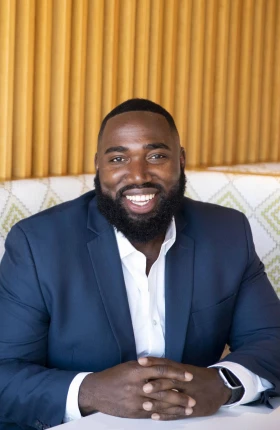Ulrike Schwarz-Runer has been BCG’s chief legal officer since 2016, based in London. She is a member of the firm’s executive committee as well as other core management committees and company boards. She is responsible for BCG’s legal function, governance, and related risk and reputational matters. Before joining BCG, she held general counsel roles in other global businesses.
BCG: What’s the value of having an environment where people feel safe speaking up at work?
Ulrike Schwarz-Runer: When people feel safe speaking up in the workplace, you'll notice more innovation and better business outcomes.
Leaders need to know how their teams are doing, what’s working and what’s not working. If you don’t hear about the problems, you can’t fix them.
If people don’t feel safe saying something needs to change, they won’t give 100% or may eventually leave altogether. This is both a missed business opportunity and a loss to the team, on top of potentially harming careers.
When people feel safe to speak up, other team members feel empowered to do so as well. It’s a positive domino effect.
What can leaders do to create that kind of environment?
Leaders need to listen. In meetings, ask others if there’s anything they want to share, especially if you notice that they haven’t spoken up.
As a leader, you don’t necessarily have to, and probably should not, be the first person to speak. I’ve seen some very effective leaders wait and summarize the conversation, saying, “This is what I've heard, this is what I’m taking away, or this is how I think about it based on your input.” By doing this, you send a clear message that you are not merely paying lip service, but you genuinely want to hear what others have to say and want to include their perspectives in your decision making.
Are there other things that senior managers can do to help middle managers develop the skill of being empathetic and creating psychological safety?
Senior leaders need to model active listening. The more middle managers can see what senior leaders do, the more they will understand what they should do. Everything starts at the top.
It’s also essential to demonstrate how to be an empathetic leader. Build personal relationships with people. See the human being—not just the employee—and get to know the individual behind the professional. Invest time in getting to know others and have conversations. Ask them how they’re doing. People are interesting! I believe the more senior leaders demonstrate this behavior, the more it encourages middle managers to do the same.
Are there formal processes that a company can put in place to create psychological safety?
Absolutely. Formal channels that allow people to speak up include ombudsman systems, whistle blower hotlines, and employee surveys. These are necessary to have in place. But frankly, if you have to rely solely on those formal channels, that’s not great culture, right?
I hope that, instead, people feel comfortable speaking directly to their local leadership, their team, their functional leaders. If they want to have a bit more distance, maybe they can talk to a member of their global team or HR team.
The goal is to create a culture where concerns can be raised within the team, so people don’t have to hide behind an anonymous reporting system. Sometimes, of course, those approaches make sense, and they should always be an option for employees. But for me, first and foremost, I want to have a culture where everyone feels comfortable sharing concerns. That’s the most important goal in creating cohesive, high-functioning teams.
What do leaders need to do when concerns are raised?
Leaders, at any level, need to know that if someone shares a concern, you cannot ignore it. You must address those concerns. If you don’t, the problem becomes bigger and bigger.
As for what to do—it really depends on the situation. It might mean clarifying rules. It might mean someone offers an apology. Sometimes, it requires more serious steps. Handling every situation with sensitivity is essential, but it is equally important to address the issue. The feedback loop is critical. Leaders always need to close the loop with the person who raised the concern. It’s not always easy, but leadership is a privilege that comes with the responsibility of empowering and helping others.
Read more conversations about psychological safety

Read the Q&A with Dinesh Khanna

Read the Q&A with Joe Davis






